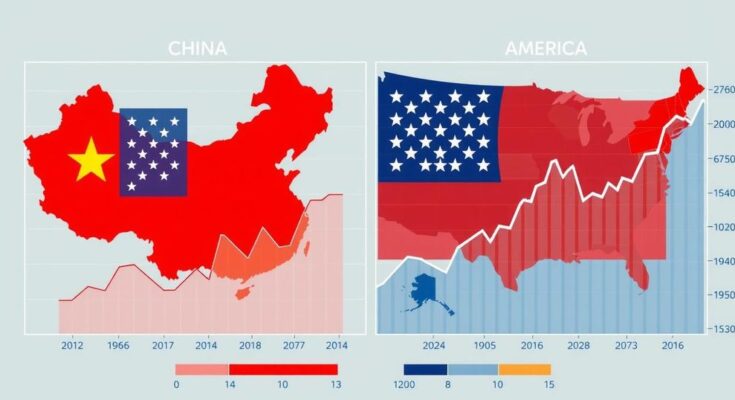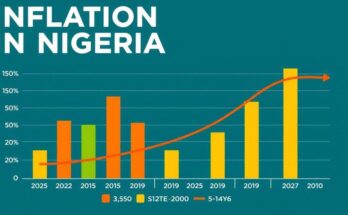This article examines the question of whether China’s economy surpasses that of the United States, highlighting the complexity of measurements and the implications of climate change, resource management, and military readiness in the context of U.S.-China relations. It underscores the importance of relevant production indices over traditional GDP metrics and the role of soft power in geopolitics.
Determining whether China’s economy outpaces that of the United States involves complex metrics, and it is evident that the current U.S. administration may struggle to effectively confront the assertive posture of the Chinese regime. With an inclination to compromise with authoritarian powers, the United States must grapple with critical strategic resources such as microprocessors and battery technology, essential for modern warfare. This dependence further complicates diplomatic relations and national security strategy, particularly as the GOP appears fixated on fossil fuel interests while neglecting the pressing challenge of climate change, which has profound implications for global stability.
Conventional economic measures—like gross domestic product (GDP)—often fail to account for the broader fallout from climate change, which has been costing the U.S. billions annually. As China accelerates its manufacturing capabilities, climate risks are exacerbated; despite its advancements in alternative energy, the country continues to build coal-fired power plants at alarming rates. The consequences of such development strategies transcend national borders, contributing to detrimental environmental changes that threaten collective security and human well-being.
Critics assert the necessity to prioritize relevant production indices, such as steel, oil, and rare minerals, rather than focusing solely on generalized GDP figures. The perceived trade deficit, where the U.S. imports far more from China than it exports, also demands scrutiny. The underlying question remains whether traditional economic theories apply in this context, particularly concerning currency valuation and international trade dynamics.
Moreover, it is imperative to consider national defense capabilities alongside economic power. The contrast in population size between China and the U.S. suggests that a nation with a larger population may inherently possess a more formidable manufacturing sector. Consequently, U.S. policymakers must pursue effective strategies to enhance industrial output while maintaining military readiness.
Ultimately, the lack of straightforward answers in the U.S.-China relationship emphasizes the need for greater deliberation on the implications of economic competition and national security. The efficacy of U.S. soft power and its capacity to navigate the geopolitical landscape will dictate the trajectory of future interactions with China, necessitating thoughtful discourse on trade, defense, and environmental sustainability, all of which are crucial to maintaining global order.
The analysis of whether China’s economy is ‘ahead’ of the U.S. encompasses various economic, environmental, and geopolitical facets. As U.S.-China relations become increasingly strained, understanding the implications of their manufacturing capabilities in light of national security, climate change, and global competition is critical. While traditional economic metrics such as GDP provide some insights, they often fail to capture the significance of emerging technologies, resource management, and soft power strategies—elements that are essential in the contemporary geopolitical framework.
In conclusion, measuring the economic standing of China relative to the United States extends beyond mere statistical analysis. It incorporates critical considerations regarding climate change, strategic resources, and national security imperatives. As geopolitical tensions rise, the need for a robust U.S. industrial strategy and assertive soft power is paramount. Moving forward, policymakers must strive for a comprehensive understanding of these dynamics to effectively navigate the complex relationship with China.
Original Source: www.noahpinion.blog




